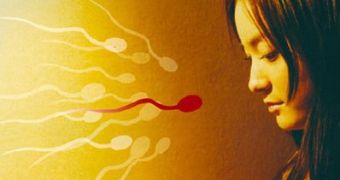Mitochondria are the little fabrics of energy for the cell, where sugars and fats are burned, resulting energy, water and carbon dioxide. They have their own DNA, distinct from the nuclear one and mutations in the mitochondrial DNA have resulted to be one of the main causes of low sperm count and mobility in humans.
But the mitochondria are inherited from the female only and from the point of view of sexual selection, female-limited response to selection has been largely ignored.
Now a team at the University of Nevada, Reno, made of Jeanne Zehan, an assistant professor of biology and David Zehan, associate professor of biology, both of the Department of Biology, is going to assess the importance of maternal inheritance of mitochondria for sexual selection and male adaptation.
The research will be made on a pseudooscorpion, Cordylochernes scorpioides from tropical America and will make a whole-genome mitochondrial sequencing, a comprehensive analysis of the physiological and morphological traits of sperm of importance in competitive ability, a large-scale sperm competition test for detecting the target of selection for sperm traits, and a replicated, multi-generation research in which the evolutionary reaction to selection on the trait which is most important in sperm competition will be determined employing both maternally- and paternally-based selections.
The researchers believe that the new research will further explain how mitochondria are connected to male fertility.
"The fundamental insight that strict maternal inheritance of mitochondria constrains the ability of males to respond adaptively to selection has led to major advances in the study of human male infertility," said lead researcher Jeanne Zehan. Previous researches have also studied this phenomenon in lab mice and domestic fowl.
"However, these studies have not assessed the effects of natural mitochondrial DNA variation on male fertility and sperm competitive ability. Clearly, more research is needed, particularly on natural populations not subject to the potentially strong effects of genetic drift associated with domestication."

 14 DAY TRIAL //
14 DAY TRIAL //